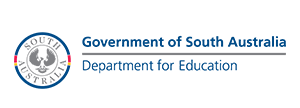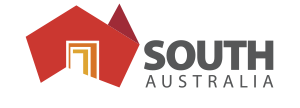About Hackney Kindergarten
Hackney Free Kindergarten was established in 1926. Originally operating in the Methodist Mission Hall, its aim was to assist disadvantaged communities through early intervention in the education and care of preschool children. The kindergarten moved to its current location in College Park in August 1932.
Our Educators
The Educators at Hackney Kindergarten include a Director, Teachers and Early Childhood Workers.
From time to time you will see other adults at the preschool. These may include:
- Financial support staff
- Specialists such as Speech Therapist and Psychologists
- Preschool Support Workers
- Bi-lingual Support Staff
- Parent Helpers
- Volunteers
- Work Experience Students
- University based Pre service teachers / Occupational therapy Students
Statement of Philosophy
We believe children are unique individuals who are capable, competent, co-contributors and active participants in their own learning.
In developing genuine partnerships where Families and Early Childhood Educators value each other’s knowledge of the child and communicate freely and respectfully with each other to ensure learning experiences are meaningful and learning outcomes achieved.
In secure and respectful relationships which assist children to develop the skills and understandings they need to interact positively with others and appreciate themselves as learners.
In recognising, respecting and valuing the multiple cultural ways of knowing, seeing and living and the importance of our own indigenous communities.
In continually seeking ways to build our professional knowledge and engage in critically reflective practice to gather information and gain insights that support, inform and enrich decision making about children’s learning.
In structuring indoor and outdoor environments to support children’s learning by promoting opportunities for sustained shared thinking and collaborative learning, inviting open ended interactions, spontaneity, risk taking, exploration, discovery and connection with nature.
In providing a play based learning environment which provides a balance between child initiated, child led, educator supported and intentional teaching. Opportunities exist for children to ask questions, solve problems, engage in critical thinking, explore, manipulate, discover, experiment and express themselves.
That all children have the capacity to succeed, hold high expectations for their achievement in learning and are committed to equity.
That ‘all living things are interconnected’ (DEEWR 2009) and that as Early Childhood educators we have a responsibility to play an active and significant role in assisting young children to understand sustainability issues, concepts and practices.
Curriculum
Teaching and Learning
At Hackney Kindergarten, we plan, program and report using the Early Years Learning Framework, Belonging, Being and Becoming.
The Framework conveys the highest expectations for all children’s learning from birth to five years and through the transitions to school. It communicates these expectations through the following five Learning Outcomes:
- Children have a strong sense of identity
- Children are connected with and contribute to their world
- Children have a strong sense of wellbeing
- Children are confident and involved learners
- Children are effective communicators
The Framework provides broad direction for early childhood educators in early childhood settings to facilitate children’s learning. It guides educators in their curriculum decision-making and assists in planning, implementing and evaluating quality in early childhood settings. It also underpins the implementation of more specific curriculum relevant to each local community and early childhood setting.
The Framework is designed to inspire conversations, improve communication and provide a common language about young children’s learning among children themselves, their families, the broader community, early childhood educators and other professionals.
Learning Environment
The Educators at Hackney provide an environment that is engaging for young children and supports them to develop dispositions for learning like curiosity, resilience, imagination, communication and the ability to reason and reflect. Children are encouraged to be self-directed in their learning and have opportunities for uninterrupted play based experiences.
Inquiry based Learning
Young children are inquisitive and love to ask questions as they make sense of the world and their place in it. Questions are also a powerful tool for educators to promote children’s thinking and learning. When children are able to question and investigate the answers, they feel in charge of their own learning. An Inquiry-based approach to learning harnesses their curiosity and keenness to investigate, creating an interesting, engaging and meaningful curriculum that uses children’s interests and questions as a starting point for effective learning.
Site phone: (08) 8362 1536
Site email: dl.4620.leaders@schools.sa.edu.au




